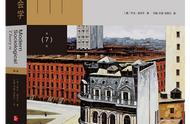Dramaturgy
戏剧论
Sociologist Erving Goffman developed the concept ofDramaturgy, the idea that life is like a never-ending play in which people are actors. Goffman believed that when we are born, we are thrust onto a stage called everyday life, and that our socialization consists of learning how to play our assigned roles from other people. We enact our roles in the company of others, who are in turn enacting their roles in interaction with us. He believed that whatever we do, we are playing out some role on the stage of life. Goffman distinguished between front stages and back stages. During our everyday life, we spend most of our lives on the front stage, where we get to deliver our lines and perform. A wedding is a front stage. A classroom lectern is a front stage. A dinner table can be a front stage. Almost any place where we act in front of others is a front stage. Sometimes we are allowed to retreat to the back stages of life. In these private areas, we don’t have to act. We can be our real selves. We can also practice and prepare for our return to the front stage.
社会学家欧文·戈夫曼(Erving Goffman)提出了戏剧论的概念,他说生活就像一场永不停歇的大汇演,每个人都是天生的演员。戈夫曼表示,每个人一出生,便被推上了日常生活这个大舞台,一个人社会化的过程,便是向别人学习如何演好自己在这场戏剧中被分配的角色的过程。我们在他人的配合下演好自己的角色,他人通过与我们的互动也演好他们各自所扮演的角色。戈夫曼指出,我们的每个行为动作, 都是对人生舞台上某个角色的诠释。戈夫曼将“前台”和“后台”加以区分。日常生活中,“前台”占据了我们大多数时间,我们在这里诵读各自所扮演的角色台词,奉献出各自的表演。婚礼是一种“前台”。教室的讲台也是一种“前台”。甚至餐桌也可以是一种“前台”。大凡我们在他人面前呈现的行为动作,都可以视为“前台”的表演。有时候,我们可以退场到人生的“后台”。在“后台”的私人领域里,我们卸了妆,从表演中暂时解脱出来。在这里,我们可以做真实的自己。但在“后台”上我们也需不断练习,以随时做好准备重新回到“前台”。

Impression Management
印象管理
Goffman coined the term Impression Managementto refer to our desire to manipulate others’ impressions of us on the front stage. According to Goffman, we use variousmechanisms, called Sign Vehicles, to present ourselves to others. The most commonly employed sign vehicles are the following:
Social setting
Appearance
Manner of interacting
戈夫曼提出了“印象管理”一词,指的是人们试图控制他人对“前台”自己所形成的印象的过程。据戈夫曼表述,人们会应用各种不同的方法向他人进行自我展示,这些方法被称为“符号载体”。最常用的几种符号载体如下:
•社会环境
•外观
•互动方式

Social Setting
社会环境
The social setting is the physical place where interaction occurs. It could be a doctor’s examination room, a hallway, someone’s home, or a professor’s office. How we arrange our spaces, and what we put in them, conveys a lot of information about us. A person who lives in a huge home with security guards, attack dogs, and motion detectors conveys the message that he or she is very important, wealthy, and powerful, and probably that uninvited visitors should stay away. On the other hand, the owner of a house with no fence, lots of lights, and a welcome mat would seem much more inviting but perhaps not as rich or powerful.
社会环境是人们进行互动的物理环境场所。医生的检查室、走廊、某个人的家,或是教授的办公室,这些都属于物理环境场所。这些场所的空间布置方式,以及里面放置的东西,都可以揭示出空间主人的许多信息。一个人如果住在配有保安、军犬和移动探测器的大房子,那他/她必定是一个重要、富有、有权势甚至是不可随意被打扰的人。相反,如果一个人住的房子没有围栏、迎客红毯,灯光暗淡,那么这个人可能不那么有钱或者有权,但他/她却更容易和他人打成一片。

How we decorate our settings, or what Propswe use, also gives clues to how we want people to think of us. A businesswoman with a photo of her family on her desk communicates that things outside of work are important in her life. When a professor displays her degrees and certificates on the wall of her office, she communicates that she wants to be viewed as a credible authority in her chosen field. When people decorate offices, hang pictures in clinics, or display artwork in their homes, they are using props to convey information about how they want others to see them.
我们如何装饰这些社会环境,或者我们使用什么工具来装饰,都能体现出在他人对自己所形成的印象上,我们内心的期望值。一个女企业家如果在办公桌上放家人照片,那么她在向外界传达,除了工作,其他事情对她也同样重要。一位女教授如果在办公室的墙上挂着学位和资质认证,那么她在向外界传达,她希望自己能够获得所在领域的权威认可。人们装饰办公室,在诊所挂上照片,或者在家里摆上艺术作品,都是在使用特定的工具使别人形成的印象符合自己的期望。














